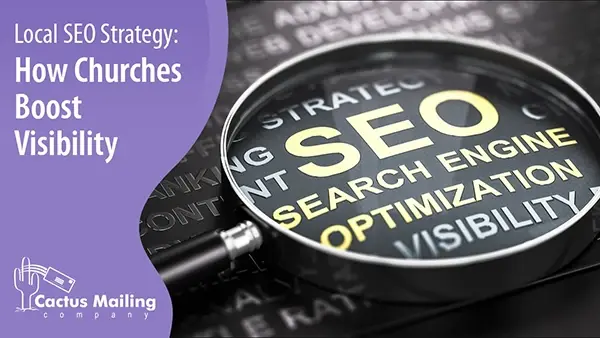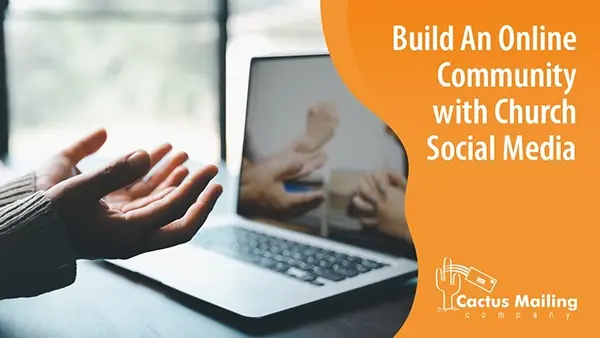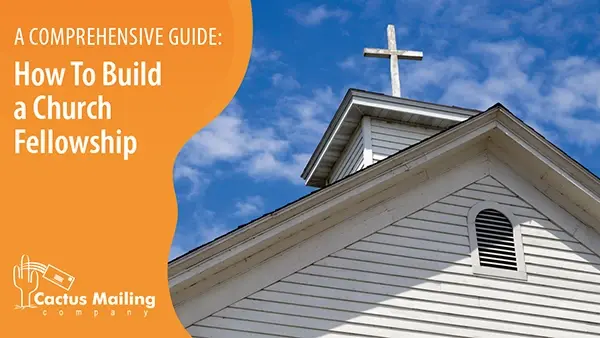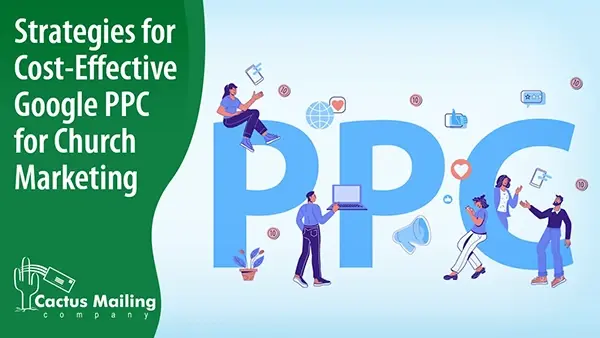We Are Here to Help!
What to Expect from Us:
No Pressure, Just Service!
Get no obligation pricing details and strategies that will work for your business.
Churches increasingly recognize the importance of leveraging Local Search Engine Optimization (Local SEO) to enhance visibility and connect with their communities. Navigating Local SEO presents unique challenges and opportunities for religious organizations, distinct from conventional businesses or nonprofits. Explore a variety of local SEO tactics tailored specifically for churches, offering practical strategies and insights to boost your online presence.
By integrating Local SEO principles into your church marketing strategies, you address the technical aspects of digital visibility and the importance of messaging and community engagement. Strengthen your connection with existing and potential congregants by ensuring your church's spiritual mission resonates with your online activities.
Whether your church is taking its first steps into the digital world or refining its online strategy, these strategies will empower religious organizations to use local SEO for church marketing, ensuring your congregation remains spiritually and digitally relevant in local communities.
Basics of Local SEO for Churches
Churches can gain online visibility through increased mentions and backlinks from community activities and joint events. Partnering with local organizations can be a powerful strategy for church marketing. Leveraging shared resources, networks, and community outreach helps the church to build trust and goodwill among its members and the local community. It also strengthens the church's brand, allowing it to reach a wider audience and expand its reach and mission. This streamlined approach focuses on building strong local connections and creating valuable content, which is key to developing effective backlinks for enhancing a church's local SEO.
Collaborate with Local Community Organizations
- Identify potential backlinks from local businesses, educational institutions, community groups, and media outlets.
- Participate in community events and service projects through collaborations and partnerships.
- Fosters relationships and generates natural backlink opportunities, boosting your website's SEO and visibility in search engine results.
- These relationships also offer valuable networking opportunities for building your brand.
Develop and Share Valuable Content
- Create high-quality content, including blog posts about community events, spiritual insights, and church news.
- Share this content through your church’s social media channels and community forums to attract individuals seeking a faith-based community.
- Increased online visibility enhances your church's credibility and can re-engage former members who may have stopped attending.

Utilize Local Listing and Online Directory
- Seek coverage in local media outlets for events or initiatives.
- Ensure your church is listed in all relevant local and online directories.
- Both media mentions and directory listings often include backlinks to your website, providing valuable local SEO benefits.
Guest Blogging and Active Online Participation
- Contribute guest posts to local business blogs, community websites, or religious platforms.
- Include backlinks to your church's website in your content.
- Actively engage in relevant online forums and social media groups to increase visibility and discover potential backlink opportunities.
Finding the Right Keywords for Your Church
Effective local SEO for your church begins with identifying the keywords that potential members use to find churches in your area. These keywords form the cornerstone of your online presence, helping you connect with your community more effectively. Here's how to conduct keyword research for your church:
- Start with Basic Keywords: Begin with relevant keywords like "church," "Christian community," or "place of worship" – terms commonly used in church searches.
- Include Location-Based Terms: Enhance local SEO by adding location-specific keywords such as "church in Orlando" or "Orlando Christian services" if your church is in Orlando.
- Consider Denominational Keywords: If your church has a denomination, incorporate related terms like "Baptist church," "Catholic parish," or “Methodist congregation.”
- Add Service-Specific Keywords: Capture searches for church services and programs with keywords like "youth groups," "Sunday service," "Bible study," or “community outreach.”
- Use Long-Tail Keywords: Utilize longer, specific phrases like "family-friendly church in [Location]" or “contemporary worship services near me” for targeted traffic.
- Analyze Competitors: Research keywords local churches use to uncover effective niche keywords for your church's area.
- Incorporate Community Terms: Highlight your church's community involvement with keywords like "community service events in [Location]" or “[Location] charity events.”
By carefully selecting and using the right keywords, your church can improve its online visibility and better connect with people in your community seeking spiritual guidance and fellowship. Remember, the goal is to be visible to those looking for what your church specifically offers. Keep your keywords current to align with changing trends, new programs, and shifts in your church's focus.
Google My Business for Church Visibility
Google My Business (GMB) enhances your church's visibility in local searches. It can significantly boost your church's online presence and outreach efforts with Google Ads and the Google Ad Grant program. Reach more people in your local community and beyond by:
Using Google Ads for Church Marketing
Google Ads can be a powerful tool for churches, allowing them to appear prominently in search results for specific keywords. Here's how you can leverage Google Ads:
- Targeted Keyword Ads: Use Google Ads to bid on keywords relevant to your church and community services to ensure your church appears in search results when a person looks for churches or community events in your area.
- Local Campaigns: Focus on local ad campaigns that target your geographical location since the primary audience is typically within a specific local community.
- Advertise Events and Services: Use ads to promote special events, services, or programs your church offers, such as holiday celebrations, charity events, or youth programs.
Leveraging Google Ad Grant for Non-Profits
The Google Ad Grant program offers non-profit organizations, including churches, up to $10,000 monthly in free advertising on Google Ads.
- Eligibility and Application: Ensure your church qualifies for the Google Ad Grant program. The application process involves proving your non-profit status and complying with Google's regulations.
- Strategic Use of Grant: Use the Google grant to target keywords that may be too competitive or expensive to bid on otherwise. It can increase your church's visibility significantly without impacting your budget.
- Tracking and Analytics: Utilize Google Analytics in conjunction with Google Ads to track the effectiveness of your campaigns. This data can help refine your strategies and ensure the best use of the grant.
Optimizing Google My Business Listing for Churches
Your GMB listing is key to local SEO. Here's how to optimize it:
- Complete and Accurate Information: Ensure your GMB listing has accurate and comprehensive information about your church, including address, service times, and contact details.
- Photos and Virtual Tours: Upload high-quality images of your church, and consider adding a virtual tour to give potential visitors a sense of your space.
- Regular Updates and Posts: Use GMB posts to share updates, upcoming events, or special services to keep your listing active and engaging.
- Encourage Reviews: Positive reviews can improve your church's visibility and credibility. Encourage your congregation to leave reviews on your GMB listing.
Church Website for Local Search Rankings
Churches can significantly enhance their local search rankings and make them more visible to those seeking spiritual resources in the area when the website is optimized. It strengthens their connection with the local community through tailored, relevant online content and features.

Here are specific strategies and examples of website features that can improve local SEO for churches:
Keyword Optimization with a Local Focus
Integrate local-focused keywords such as "churches in [Your City]" or "spiritual services near me" into your website's content. For example, create a landing page titled "Community Church Services in [Your City]" that includes these keywords in the content, meta description, and URL.
Mobile Optimization
Ensure your website has a responsive design for mobile users. Include easy navigation, fast-loading pages, and clickable phone numbers for a seamless mobile experience.
Developing Localized Content
Create content that reflects local interests and events. For example, have a blog section on your website with posts about local charity events your church participates in or seasonal community activities. Use local landmarks and place names in your content to enhance local relevance.
Landing Pages for Specific Audiences
Design landing pages tailored to different segments of your local community. For instance, create a page for families detailing children's programs or another page for community outreach initiatives.
Leveraging Social Media
Use social media to share local content and drive traffic to your website. Regular updates about local church activities and community involvement can enhance local engagement and visibility.

Incorporating Local SEO Features
- Adding a Map to Your Contact Page: Enhance your church's contact page by integrating a map that pinpoints the church's location. Including a Google map will help a visitor locate your church easily and reinforce the local relevance of your website to search engines.
- Embedding Google Maps Directions: Allows potential visitors to get accurate directions to your church from their location with just a few clicks on Google Maps. It's a practical tool that encourages physical visits and improves user experience.
- Utilizing Local Schema Markup: A local schema markup helps search engines better understand your church's specifics, like its address, service times, and events. Implementing this markup can significantly improve how search engines interpret and display your church's information in local search results.
Local SEO Optimization for Churches
Understanding common challenges and measuring SEO efforts can be overwhelming. Utilizing local SEO tools and analytics to gain insights into how well a church's online presence resonates with the local audience and contributes to church growth is often necessary. By regularly reviewing these metrics, churches can understand how effectively they reach and engage their local audience.
Common Local SEO Challenges for Churches
Common local SEO challenges for churches often revolve around optimizing their online presence to reach and engage with their local community effectively. Here are some of the key challenges:
- Limited SEO Knowledge and Resources: Many churches face challenges due to a lack of SEO expertise and limited budgets, making effective local SEO implementation and maintenance difficult.
- Competition with Established Churches: Smaller or newer churches struggle to compete in search rankings against larger, well-established churches with more resources and a stronger online presence.
- Consistency in Online Information: Maintaining consistent church details, like name, address, phone number (NAP), and service times, across various online platforms (e.g., Google My Business, social media, directories) is crucial for local SEO but can be challenging.
- Content Creation: Regularly producing engaging and locally relevant content demands time and effort. Such content is vital for improving search rankings and attracting website visitors.
- Engaging Diverse Audiences: Tailoring content to meet the needs and interests of diverse local communities can be challenging yet essential for broader outreach.
Addressing these challenges requires ongoing education, strategic planning, and potentially seeking external expertise or leveraging church community volunteers with relevant skills.
Measuring the Impact of SEO Efforts on Church Growth
Local SEO tools are instrumental in optimizing a church's online presence. They help identify keywords, analyze search trends, and track the church's search engine rankings. Here are a few tools and how they can help you refine your SEO strategies:
- Monitoring Website Traffic and User Engagement: Google Analytics provides detailed insights into the number of visitors, how they find the website (e.g., through organic search, social media, direct visits), and what pages they engage with. Tracking these metrics over time can reveal trends and patterns, indicating whether SEO efforts are successfully attracting and engaging the local community.
- Keyword Tracking and Optimization: Churches can use tools like Google Keyword Planner, Moz Local, or SEMrush to find keywords with good search volume and low competition and to monitor how well they rank. These tools provide insights into what your target audience is searching for, information on keyword performance, and suggest areas for improvement.
- Analyzing Backlink Profiles: Tools like Ahrefs can help analyze the church's backlink profile, identify where the backlinks are coming from, and assess the quality of these links. A strong backlink profile from local news sites, community blogs, and other organizations can boost local search rankings.
- Tracking Local Listing and Review: Tools like BrightLocal can help churches manage and track their listings on various directories and review platforms. Consistent and accurate listings and positive reviews are significant in local SEO. These tools can alert churches to new reviews, allowing for timely responses and active engagement with the community.
Alternatively, SEO Experts is an SEO company that can analyze key factors that influence your Google search rankings and offers a comprehensive guide to improving church SEO services.

Conclusion
Churches can significantly enhance their digital marketing strategies by leveraging local search engine optimization (local SEO). Utilizing a Google Business Profile is crucial in strengthening local SEO for church marketing. These tactics provide the necessary insights to optimize online strategies, ensuring churches remain visible and relevant in their local communities. Through continual measurement and adaptation of SEO efforts, churches can effectively use digital platforms to support their mission and growth, making the most of digital marketing tools to reach and engage their audience.
Our postcards have helped various churches get leads, boost awareness, and grow revenue. Let us help you create a marketing postcard design that can achieve your marketing goals!

 Cactus Mail Team: Apr 15, 2024
Cactus Mail Team: Apr 15, 2024




 Mike Ryan
Mike Ryan